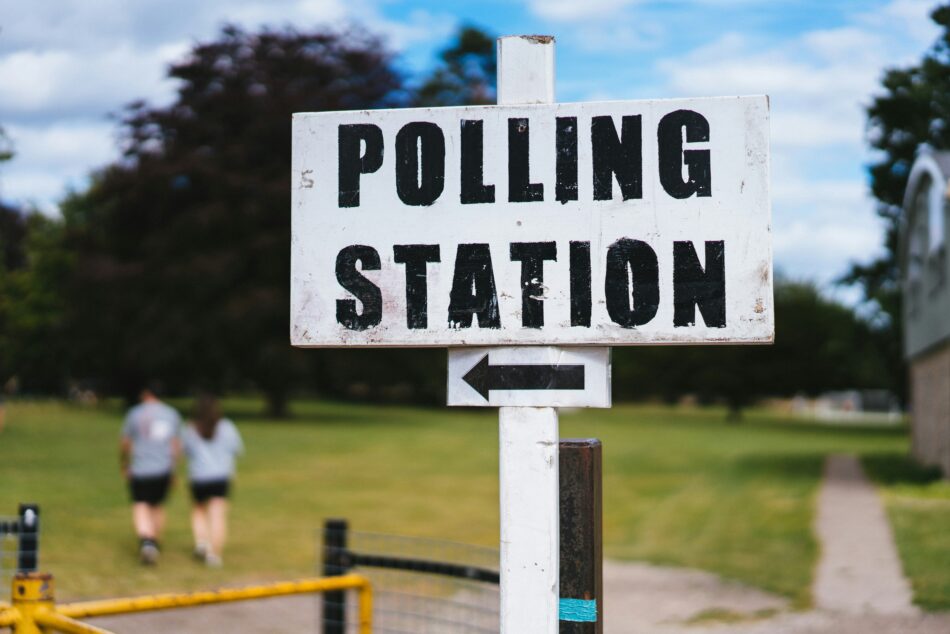For Jacob Katrow, an independent voter, the fear of Donald Trump winning the presidency outweighs his preference to vote Republican in the upcoming general election. Katrow, a 26-year-old self-employed property manager and real estate investor from Abington, Pennsylvania is a first generation American and son of two Albanian immigrants.
“It’s 50/50,” Katrow said in reference to the sentiment around political leanings in his home county. “I will probably vote for Kamala.”
Katrow now lives in South Philadelphia, which is close to the suburban area of Abington in Montgomery County, a county President Joe Biden won 62.6 percent of the vote in 2020, but narrowly won the state of PA by 1.2 percent of the vote, according to the Delaware Valley Journal.
“I wouldn’t consider myself to be a single policy voter. It’s more so out of fear of Trump being elected,” said Katrow. “The policies that mean most to me are abortion rights and tax cuts. I think abortion rights are more important than tax cuts.”
According to a 2023 Pew Research Center survey, only 31 percent of people from 24 countries other than the United States expressed confidence in Trump.
“I think it’s really important for our country to be taken seriously on an international level, and Trump hurts our chances of that,” said Katrow. “If there was someone who wasn’t a convicted felon. Who wasn’t against abortion bans. Someone who was a pragmatic person. I would probably vote republican.”
This notion is now on the forefront in Washington. A political action committee was created called Republican Voters Against Trump (RVAT.) Superpacs like RVAT are legally permitted to raise and spend unlimited amounts of money. They are allowed to obtain cash from individuals, corporations and unions to support or oppose politicians. This particular organization features testimonials from registered Republicans and even former Trump voters explaining why they would never vote for Trump again.
“Trump’s proclivity to rule with an iron fist and to do whatever he wants worries me,” Katrow added. “I think he’s an overall threat to democracy.”
The Brookings Institute is a political non-profit based in Washington D.C. The non-profit conducts in-depth, nonpartisan research to improve policy and governance at local, national and international levels. Darrell M. West, a political expert and senior fellow at the Brookings Institute, wrote an article in 2022 titled, Trump is not the only threat to democracy. The article suggests that with Trump in power also comes the imminent threat of other undemocratic political leaders having influence.
“One of the problems we have now is the rise of copycat candidates who parrot Trump’s moves and endorse his anti-democratic tactics. Possible presidential candidates Ron DeSantis, Ted Cruz, and Josh Hawley as well as dozens of congressional candidates spread the Big Lie about 2020 election fraud and some Republicans show a willingness to have electors chosen who do not respect the popular vote winner within particular states,” West wrote in his piece.
Legal scholar Angel Diaz, was a fellow at NYU’s Brennan Center for Justice at NYU Law in the Counsel, Liberty and National Security program. He has given widespread presentations on topics such as police surveillance, race in law and politics, protecting elections in the age of misinformation on Facebook.
“Specifically, border security is one of the big framing points for frankly both parties to think about,” Diaz said. “The extraction from border security is leveraging a lot of anxiety people may feel about particular communities. I do think that Donald Trump’s campaign has been a lot more open about using misinformation. Specifically surrounding Haitian immigrants.”
Trump previously baselessly claimed during a national debate that Haitian immigrants in Springfield, Ohio were eating pets. In a Sept. 2024 poll conducted by YouGov, an international online research data and analytics technology group, over 50 percent of Trump supporters said they believed that the claim is “definitely or probably true.”
“Trump wants to foment fear and trade on a very old trope. Basically, making immigrants seem un-American, barbaric and undeserving of a place in the American imagination,” Diaz stated. “From the Harris campaign this is an election that is about law and order. The Trump campaign is being painted as a campaign that is a threat to everyone’s safety.”
Vice President Kamala Harris is a former prosecutor who oversaw more than 1,900 marijuana convictions, according to the San Francisco Based Mercury News with data obtained from the California District Attorney’s office. The republican candidate has stated he wants to reinstate law and order. He now has 34 felony convictions.
“Both parties are using fear. Both parties are claiming to want to restore order. It’s just a matter of one of the parties naming immigrants as the biggest threat,” said Diaz.
“For folks who may have spent the last four years plus thinking about police reform and the way in which there has been lots of sustained demand to achieve more structural change around police abuse. This particular campaign seems to be walking away from some of that animated sentiment and moving instead towards one in which support for law enforcement is a way to ensure our democracy is protected.”
Diaz was a panelist at California Constitutional Privacy at 50: Power of State Law and Promoting Racial Justice in the Digital Age, a 2023 panel at Berkeley Technology Law Journal Fall Symposium.
“I think it can be difficult when you feel like your important issues are not being taken as seriously as other issues,” Diaz said. “The question becomes, what do movements on the left do in response? There is no one size fits all answer to that question. It is not always useful to always think solely about what you do at the ballot box as a representation of a political movement.”
According to a 2023 poll by the Pew Research Center, 25 percent of Americans said neither party represents the interests of people like them even somewhat well.


